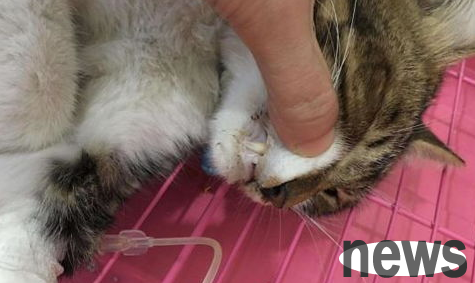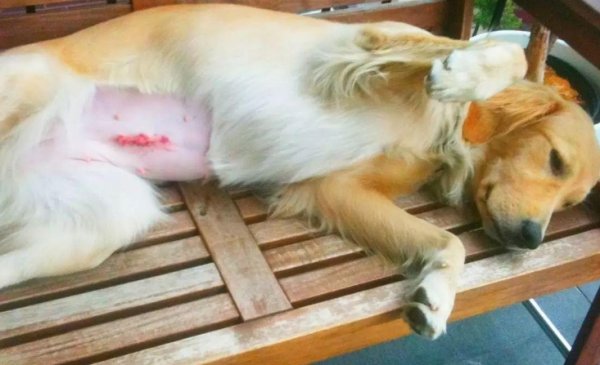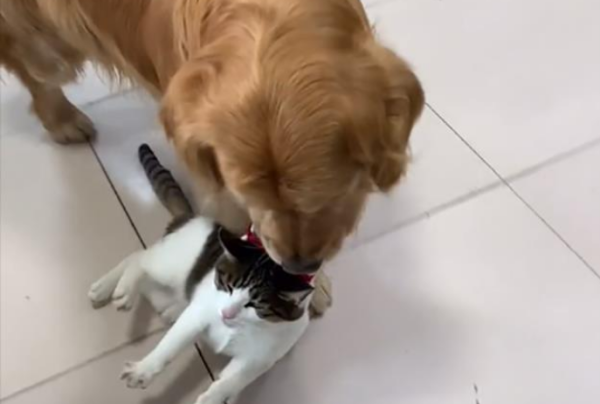Dogs lose appetite, find the cause and prescribe the right medicine!
Today, we will give you some insights on common causes of dogs’ loss of appetite and corresponding treatment methods. I hope it can help you and your dog overcome difficulties!
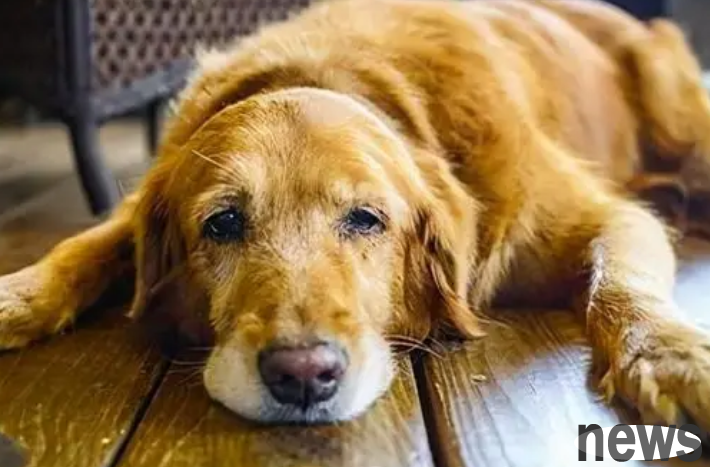 1. Food is not suitable for dogs’ diet needs to be adjusted according to factors such as age, body shape, and health. If the food you give to your dog does not meet its nutritional needs, or does not suit its taste, it may be reluctant to eat. You can try changing the food, or adding some seasonings, such as chicken, fish, vegetables, etc. to increase the aroma and taste of the food. You can also consult a veterinarian, choose a professional dog food for dogs, or develop a reasonable homemade recipe. 2. Living habits. Dogs also have their own living habits. If you suddenly change their diet time, location, or method, it may not adapt, which will affect your appetite. You should try to maintain your dog's dietary rules and feed it with a fixed rice bowl at a fixed time and place every day. You should also avoid making your dog feel unsafe, uncomfortable, or disturbed when feeding, such as other animals, noise, temperature and other factors. You can create a quiet, comfortable and clean diet for your dog so that it can concentrate on enjoying the food. 3. Sometimes, the dog loses appetite because it is uncomfortable, such as infection, inflammation, pain, tumor, liver problems, kidney problems, etc. These diseases may cause other symptoms in dogs, such as vomiting, diarrhea, coughing, difficulty breathing, weight loss, and loss of vitality. If you notice that the dog has other abnormal symptoms besides losing appetite, you should take it to the veterinarian immediately for examination, diagnosis, and treatment. The veterinarian may prescribe some medications or perform some surgery to help him recover. 4. Oral problems. A dog's mouth is also an important factor affecting appetite. If the dog's teeth, gums, or mouth has any damage, infection, or tumors, it may feel pain and is unwilling to chew food. You should check your dog's mouth regularly to see if there are any abnormalities, such as loose teeth, broken teeth, red and swollen gums, bleeding, bad breath, oral ulcers, etc. You should also do some oral care for your dog, such as brushing your teeth, and feeding some foods that help clean your teeth, such as bones, dry cakes, carrots, etc.
1. Food is not suitable for dogs’ diet needs to be adjusted according to factors such as age, body shape, and health. If the food you give to your dog does not meet its nutritional needs, or does not suit its taste, it may be reluctant to eat. You can try changing the food, or adding some seasonings, such as chicken, fish, vegetables, etc. to increase the aroma and taste of the food. You can also consult a veterinarian, choose a professional dog food for dogs, or develop a reasonable homemade recipe. 2. Living habits. Dogs also have their own living habits. If you suddenly change their diet time, location, or method, it may not adapt, which will affect your appetite. You should try to maintain your dog's dietary rules and feed it with a fixed rice bowl at a fixed time and place every day. You should also avoid making your dog feel unsafe, uncomfortable, or disturbed when feeding, such as other animals, noise, temperature and other factors. You can create a quiet, comfortable and clean diet for your dog so that it can concentrate on enjoying the food. 3. Sometimes, the dog loses appetite because it is uncomfortable, such as infection, inflammation, pain, tumor, liver problems, kidney problems, etc. These diseases may cause other symptoms in dogs, such as vomiting, diarrhea, coughing, difficulty breathing, weight loss, and loss of vitality. If you notice that the dog has other abnormal symptoms besides losing appetite, you should take it to the veterinarian immediately for examination, diagnosis, and treatment. The veterinarian may prescribe some medications or perform some surgery to help him recover. 4. Oral problems. A dog's mouth is also an important factor affecting appetite. If the dog's teeth, gums, or mouth has any damage, infection, or tumors, it may feel pain and is unwilling to chew food. You should check your dog's mouth regularly to see if there are any abnormalities, such as loose teeth, broken teeth, red and swollen gums, bleeding, bad breath, oral ulcers, etc. You should also do some oral care for your dog, such as brushing your teeth, and feeding some foods that help clean your teeth, such as bones, dry cakes, carrots, etc. If the dog has a serious oral problem, you should take it to the veterinarian for corresponding treatment, such as tooth extraction, tooth cleaning, tumor removal, etc.
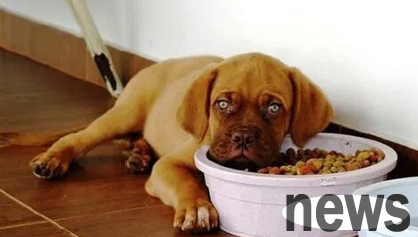 5. Vaccination Dogs are vaccinated to prevent some serious and contagious dog diseases, such as canine distemper, rabies, hepatitis, etc. Although these injections can protect the life of the dog, they may also cause some adverse reactions, such as fever, swelling, discomfort, etc. These reactions are usually mild and will disappear within a few days, but they can also cause a dog's appetite to fall. If your dog has just been vaccinated, you should observe its reaction, give it some warm water, light food, and comfort. If the dog's reaction lasts for more than two days, or has serious symptoms such as dyspnea, skin allergies, shock, etc., you should take it to the veterinary immediately for emergency treatment. 6. Traveling and strange environments Dogs can also be affected by traveling and strange environments. If you take your dog to a new place, it may feel uneasy, nervous, or curious, and thus ignore the food. Some dogs can also experience motion sickness, seasickness, airsickness, etc., causing nausea, vomiting, dizziness, etc., which affects appetite. If you are traveling with your dog, you should prepare in advance, choose a suitable transportation method for your dog, bring it some familiar items, such as blankets, toys, rice bowls, etc., so that it feels at ease. You should also give your dog some light food before and after the trip to avoid giving it too much water to prevent it from developing gastrointestinal discomfort. You can also give your dog some soothing agents, such as lavender essential oil, flower essence, or sedatives to help it relax and relieve stress. When you arrive at your destination, you should get your dog to adapt to the new environment as soon as possible, give it some time, space, and encouragement, let it explore, play, and rest. In short, dogs have a loss of appetite and may not be considered, but it does affect the dog's appetite, that is, the emotional problem. 7. Emotional problems. Dogs, like humans, will also have their own emotions, such as happiness, sadness, anger, fear, etc. These emotions may be affected by many factors, such as the owner's attitude, peer relationships, changes in the environment, and the degree of stimulation. If the dog feels unhappy, dissatisfied, or unsafe, it may lose its appetite or refuse to eat. You should pay more attention to the dog's emotions, observe its expression, posture, voice, and behavior, and see if it has any discomfort, dissatisfaction, or uneasiness. You should also communicate more with your dog, give it some caress, praise, and rewards, so that it feels valued, respected and loved. You can also give your dog some proper entertainment, such as toys, games, walks, training, etc., allowing it to release stress, increase fun, and increase confidence. 8. Hormone Changes The hormones of a dog will also affect its appetite, especially during special periods such as estrus, pregnancy, breastfeeding, or sterilization. During these periods, the dog's hormone levels change, which affects its mood, behavior, and appetite. Some dogs will have an increase in appetite during these periods, while others will have a decrease in appetite. These are normal physiological phenomena, so don't worry too much.. You should provide the dog with the right food, quantity, and frequency to ensure its nutrition and energy balance according to its actual situation. You should also pay attention to the dog's weight and avoid it being too fat or too thin, which will affect its health and beauty. You can also consult a veterinarian to understand the specific situation of the dog's hormone changes and take some necessary measures, such as sterilization, contraception, calcium and iron supplementation, etc. The above are the common causes of dogs’ loss of appetite and the corresponding treatment methods. I hope it will be helpful to you. Of course, these are just some basic guidance. If your dog has a long and severe appetite, or has other abnormal symptoms, you should take it to the veterinarian in time for professional examinations and treatments to avoid delaying the condition and causing irreparable consequences. Dogs are our loyal friends and a member of our family. We should give them the best care and care to make them healthy, happy and long-lasting.
5. Vaccination Dogs are vaccinated to prevent some serious and contagious dog diseases, such as canine distemper, rabies, hepatitis, etc. Although these injections can protect the life of the dog, they may also cause some adverse reactions, such as fever, swelling, discomfort, etc. These reactions are usually mild and will disappear within a few days, but they can also cause a dog's appetite to fall. If your dog has just been vaccinated, you should observe its reaction, give it some warm water, light food, and comfort. If the dog's reaction lasts for more than two days, or has serious symptoms such as dyspnea, skin allergies, shock, etc., you should take it to the veterinary immediately for emergency treatment. 6. Traveling and strange environments Dogs can also be affected by traveling and strange environments. If you take your dog to a new place, it may feel uneasy, nervous, or curious, and thus ignore the food. Some dogs can also experience motion sickness, seasickness, airsickness, etc., causing nausea, vomiting, dizziness, etc., which affects appetite. If you are traveling with your dog, you should prepare in advance, choose a suitable transportation method for your dog, bring it some familiar items, such as blankets, toys, rice bowls, etc., so that it feels at ease. You should also give your dog some light food before and after the trip to avoid giving it too much water to prevent it from developing gastrointestinal discomfort. You can also give your dog some soothing agents, such as lavender essential oil, flower essence, or sedatives to help it relax and relieve stress. When you arrive at your destination, you should get your dog to adapt to the new environment as soon as possible, give it some time, space, and encouragement, let it explore, play, and rest. In short, dogs have a loss of appetite and may not be considered, but it does affect the dog's appetite, that is, the emotional problem. 7. Emotional problems. Dogs, like humans, will also have their own emotions, such as happiness, sadness, anger, fear, etc. These emotions may be affected by many factors, such as the owner's attitude, peer relationships, changes in the environment, and the degree of stimulation. If the dog feels unhappy, dissatisfied, or unsafe, it may lose its appetite or refuse to eat. You should pay more attention to the dog's emotions, observe its expression, posture, voice, and behavior, and see if it has any discomfort, dissatisfaction, or uneasiness. You should also communicate more with your dog, give it some caress, praise, and rewards, so that it feels valued, respected and loved. You can also give your dog some proper entertainment, such as toys, games, walks, training, etc., allowing it to release stress, increase fun, and increase confidence. 8. Hormone Changes The hormones of a dog will also affect its appetite, especially during special periods such as estrus, pregnancy, breastfeeding, or sterilization. During these periods, the dog's hormone levels change, which affects its mood, behavior, and appetite. Some dogs will have an increase in appetite during these periods, while others will have a decrease in appetite. These are normal physiological phenomena, so don't worry too much.. You should provide the dog with the right food, quantity, and frequency to ensure its nutrition and energy balance according to its actual situation. You should also pay attention to the dog's weight and avoid it being too fat or too thin, which will affect its health and beauty. You can also consult a veterinarian to understand the specific situation of the dog's hormone changes and take some necessary measures, such as sterilization, contraception, calcium and iron supplementation, etc. The above are the common causes of dogs’ loss of appetite and the corresponding treatment methods. I hope it will be helpful to you. Of course, these are just some basic guidance. If your dog has a long and severe appetite, or has other abnormal symptoms, you should take it to the veterinarian in time for professional examinations and treatments to avoid delaying the condition and causing irreparable consequences. Dogs are our loyal friends and a member of our family. We should give them the best care and care to make them healthy, happy and long-lasting.









